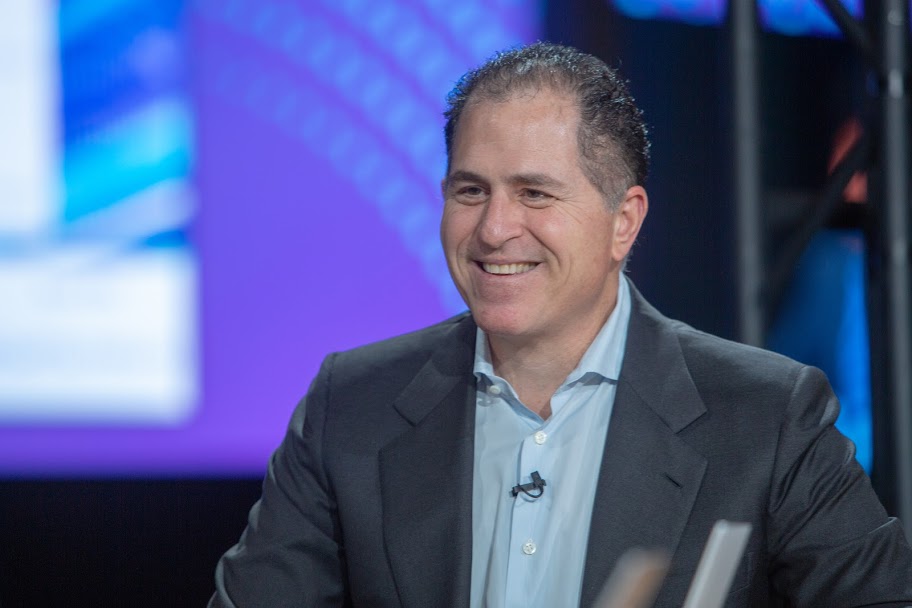 CLOUD
CLOUD
 CLOUD
CLOUD
 CLOUD
CLOUD
Dell Technologies Inc. made headlines this week when it said it’s exploring a possible spinoff of its 81% stake in VMware Inc., a data center software company that’s widely considered to be its most attractive asset.
Dell is proposing a complex financial maneuver that’s designed to address a valuation shortfall that has plagued the company for years, by removing what’s often called a “conglomerate tax.” In the case of Dell, the conglomerate tax means the company’s core value, net of its 81% ownership of VMware, is negative.
For example, in mid-June, Dell’s total value was about $33 billion, while its 81% ownership of VMware was worth approximately $47 billion, a roughly $14 billion gap. As of the stock market’s close yesterday, this gap had closed to less than $4 billion.
It was widely reported that Dell was essentially planning to sell off VMware’s shares to make this happen. But in a new breaking analysis video segment on theCUBE, Dave Vellante, SiliconANGLE Media co-chief executive and chief analyst at SiliconANGLE sister market research company Wikibon, told SiliconANGLE co-CEO John Furrier say that’s not what’s happening at all.
Rather, what Dell’s doing is proposing to distribute its 81% stake in VMware to its own shareholders. Vellante described this as a clever move that will see Michael Dell (pictured), who is Dell Technologies’ founder and biggest shareholder, along with Silver Lake Partners, Dell’s financial partner, end up owning more than half of VMware’s shares.
“Everyone inferred that what this means is that Dell is selling. But Dell is not selling VMware,” Vellante said. “[This move] will see Michael Dell, who along with Silver Lake currently owns more than 60% of Dell shares, collectively acquire more than 51% of VMware. (* Corrected, details below.)
Digging into the specifics of Dell’s plan, Vellante said that what the company is actually doing is saying to its shareholders that it will allow them to directly own the 81% of VMware shares that Dell currently owns. As a result, Michael Dell will effectively own VMware directly, as opposed to owning the company through his ownership of Dell. The idea is to clean up the complicated conglomerate structure of Dell/VMware, and at the same time unlock more value for shareholders of both companies, he said.
In addition, the move is also designed to try and solve a “liquidity hangover” that has hounded Dell ever since it acquired VMware’s parent company EMC Corp. for $67 billion back in 2016, the analyst said.
Dell took on a huge amount of debt in order to finance that deal, and because of that debt, the company has not been able to achieve an investment grade rating that gives it more financial flexibility and lower debt service costs. And that makes the company less attractive to new investors.
“What I think is happening here is that Dell will essentially transfer much of its debt to VMware,” Vellante said. Dell will accomplish this by having VMware take on additional debt and pay a special dividend to VMware shareholders. Dell will use this payment to reduce its debt and achieve an investment grade rating.
What isn’t clear is exactly how much of that debt Dell will be able to transfer. Although VMware’s finances are extremely healthy, and it has great investment ratings, Dell will have to be careful not to crush its subsidiary’s balance sheet so as to maintain those ratings. Essentially, what Dell wants to do is perform a bit of a balancing act to ensure both companies have an investment grade rating, Vellante said.
“So they’re creating this equilibrium, if you will,” he said. “I’ve heard the ceiling on VMware’s debt in order to maintain investment grade is no more than $5 billion. But I’ve also heard higher numbers, as much as $8 billion, maybe even $10 billion or $12 billion or higher. There’s a number there that Dell is going to place on VMware so that it can create a liquidity event and pay down a substantial portion of its debt.”
Even so, Vellante said the deal will unlock greater value for both companies, which means Dell will still be able to meet its fiduciary responsibility to shareholders of both.
“It’s an absolutely fascinating and brilliant move,” Vellante said, “and one that Michael Dell and his partners likely had rough designs on from the beginning.”
Here’s Vellante’s and Furrier’s analysis in full:
(* A previous version of this article omitted Silverlake’s stake and as a result overstated Michael Dell’s stake.)
THANK YOU